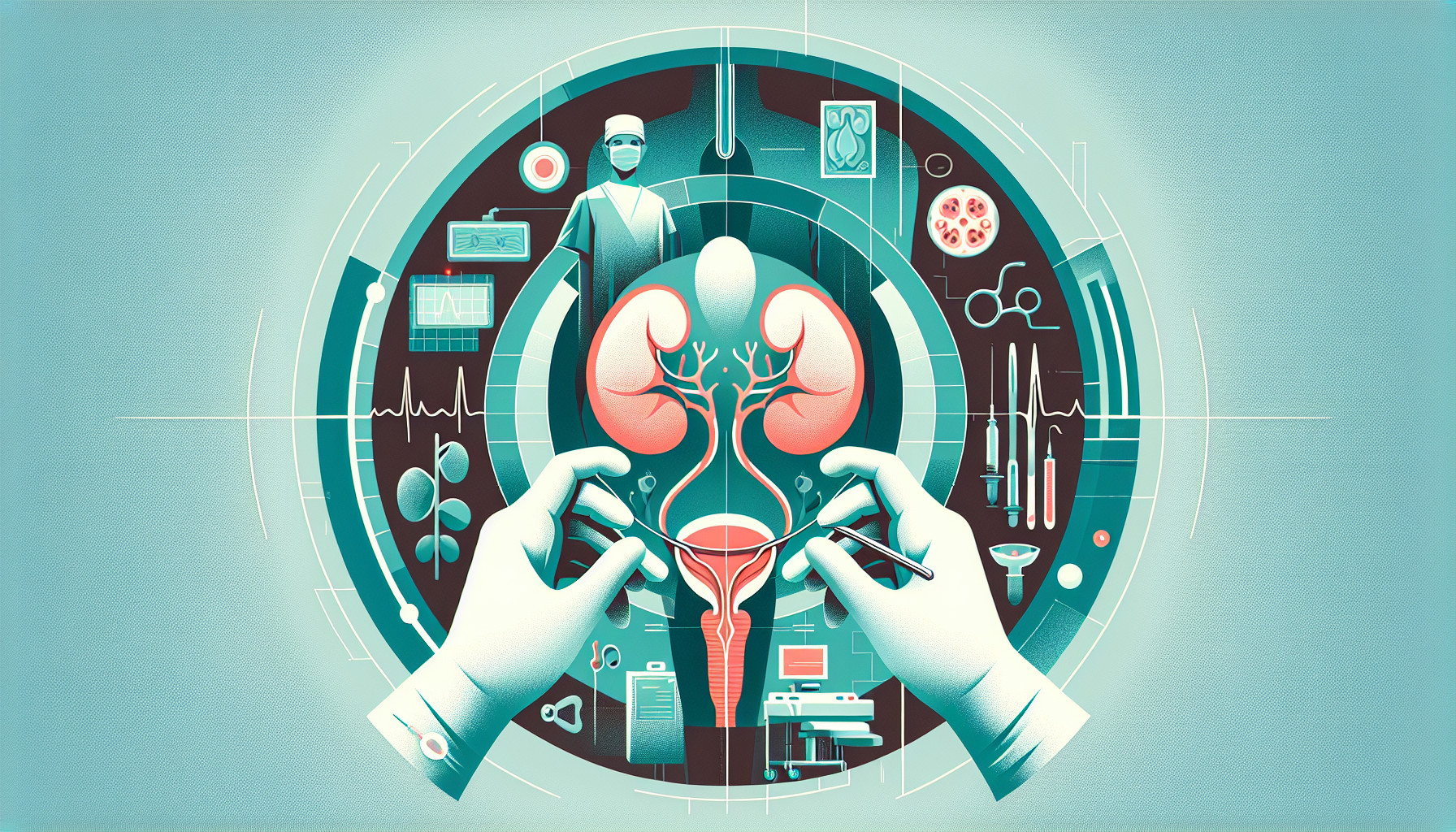Our Summary
This research paper is a review that talks about different surgical methods used to repair or reconstruct the urinary bladder when it’s damaged or not working properly due to various diseases or injuries. The paper aims to summarize these methods and discuss how they can help in maintaining the function of the urinary bladder.
FAQs
- What is the purpose of this research paper on bladder surgery?
- What are some of the surgical methods discussed in this paper for repairing or reconstructing a damaged urinary bladder?
- How can these surgical methods help in maintaining the function of the urinary bladder?
Doctor’s Tip
One helpful tip a doctor might tell a patient about bladder surgery is to follow all post-operative instructions carefully, including taking prescribed medications, attending follow-up appointments, and avoiding strenuous activities that could strain the bladder during the recovery period. It’s important to communicate any concerns or unusual symptoms to your healthcare provider promptly to ensure a successful recovery and optimal outcomes.
Suitable For
Patients who are typically recommended bladder surgery include those with:
Bladder cancer: Surgery is often recommended to remove the tumor and surrounding tissue to prevent the spread of cancer.
Bladder stones: Surgery may be necessary to remove large or stubborn bladder stones that cannot be passed naturally.
Bladder diverticulum: Surgery may be recommended to remove a bladder diverticulum, which is a pouch that can form on the bladder wall and cause urinary problems.
Bladder prolapse: Surgery may be necessary to repair a bladder prolapse, where the bladder drops down into the vagina due to weakened pelvic floor muscles.
Urinary incontinence: Surgery may be recommended to treat severe cases of urinary incontinence that do not respond to other treatments.
Bladder obstruction: Surgery may be necessary to remove a blockage in the bladder that is causing urinary retention or other problems.
Neurogenic bladder: Surgery may be recommended to repair or reconstruct the bladder in patients with neurogenic bladder dysfunction, which is caused by nerve damage affecting bladder function.
Overall, bladder surgery is typically recommended for patients with severe bladder problems that cannot be managed with other treatments, and the specific type of surgery recommended will depend on the underlying condition and individual patient needs.
Timeline
Before bladder surgery:
- Initial consultation with a urologist to discuss symptoms, medical history, and treatment options.
- Pre-operative tests such as blood work, urine analysis, and imaging studies to assess the bladder condition.
- Pre-operative instructions such as fasting before surgery and discontinuing certain medications.
- Admission to the hospital or surgical center on the day of surgery.
After bladder surgery:
- Recovery in the hospital or surgical center with monitoring of vital signs and pain management.
- Gradual introduction of fluids and food to prevent complications.
- Physical therapy or rehabilitation to regain bladder function and optimize recovery.
- Follow-up appointments with the urologist to monitor healing and address any concerns.
- Potential long-term follow-up care to monitor bladder function and address any complications that may arise.
What to Ask Your Doctor
- What specific type of bladder surgery do you recommend for my condition?
- What are the potential risks and complications associated with this surgery?
- How long is the recovery period and what can I expect during the recovery process?
- Will I need to make any lifestyle changes or follow a specific diet after the surgery?
- How successful is this type of bladder surgery in addressing my specific condition?
- Are there any alternative treatment options to consider before undergoing surgery?
- What is the expected outcome of the surgery in terms of improving my bladder function?
- Will I need to undergo any additional procedures or treatments after the surgery?
- How experienced are you in performing this type of bladder surgery?
- Are there any long-term effects or considerations I should be aware of post-surgery?
Reference
Authors: Schnürer S, Amend B, Stenzl A, Rausch S. Journal: Aktuelle Urol. 2017 Dec;48(6):561-568. doi: 10.1055/s-0043-104508. Epub 2017 Jun 14. PMID: 28614853
